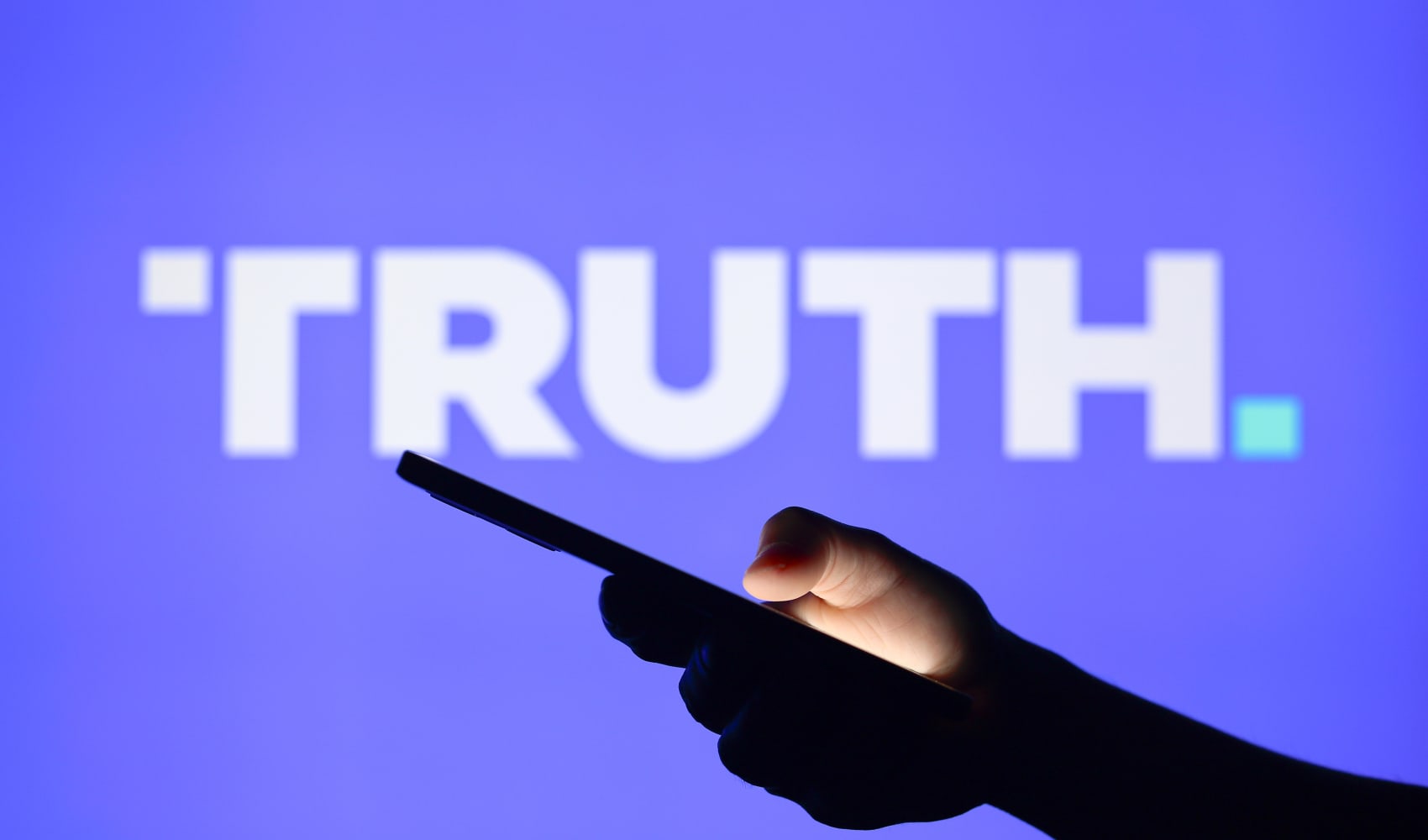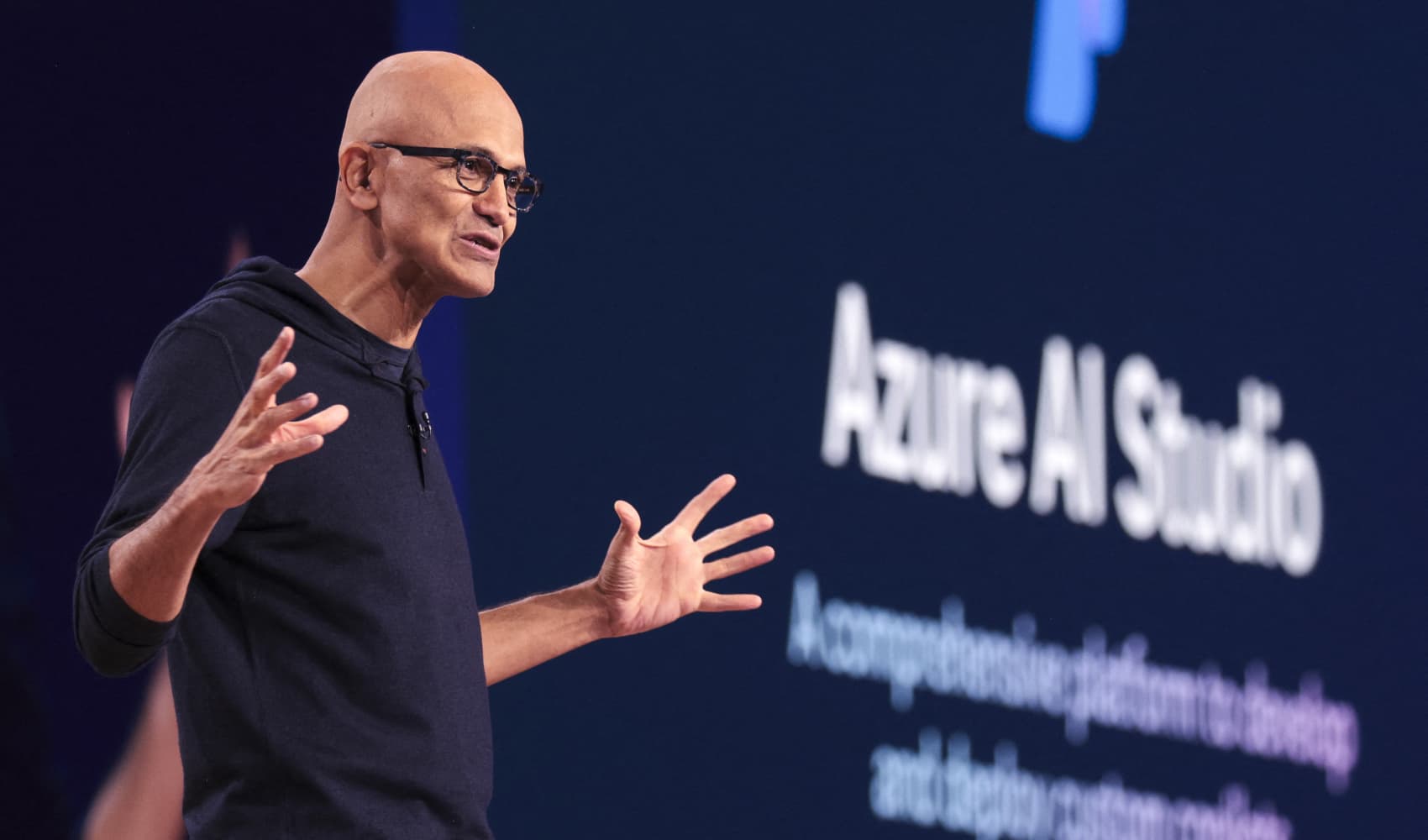
This story is part of CNBC Make It's Millennial Money series, which details how people around the world earn, spend and save their money.
Cristina Tello-Trillo is the daughter of two economists. But that's not what initially drew her to the field.
"What really got me interested in economics was playing Monopoly," she tells CNBC Make It. The 38-year-old grew up primarily in her parents' native Peru, but spent time living in Nicaragua, where she played the board game "every single day for at least a year."
"I love how you can invest in properties, you earn money, you have to save money to wait for the best property. So that really got me interested in studying economics," she says.
Get top local stories in Connecticut delivered to you every morning. Sign up for NBC Connecticut's News Headlines newsletter.
That spark of interest grew into a passion as she studied economics at Pontificia Universidad Catolica of Peru. There, she met her now-husband, Sebastian, who was studying the same thing.

Today, Tello-Trillo is a senior economist at the U.S. Census Bureau, and her husband is an economist for an international financial institution. They live in Bethesda, Maryland, with their 5-year-old son, Leo. Together, they made $268,000 in 2023 between their salaries, the stipend Tello-Trillo earns as an adjunct professor at the University of Maryland and profit on a rental property they own in Washington, D.C.
Money Report
Tello-Trillo earned around $161,600 in 2023, but expects to boost her income to $201,564 this year, thanks to three additional investment properties she purchased on her own in Rochester, New York.
Though they may not have pushed Tello-Trillo into economics, her parents taught her about money from a young age. They were always frugal, and cut off financial support for Tello-Trillo when she turned 19. She still carries many of those lessons with her, but she's also happy to be able to spend her earnings on things that matter to her.
"I see money as a thing that you work really hard for, and then if you want to spend money [it's] because you really, really value something," she says.
Economics 'teaches you how the world works'
A common misconception is that economics is a lot of math, Tello-Trillo says. But "economics is a social science that teaches you how the world works," she says. One thing that taught her: Getting a good education could unlock more money and, thus, more opportunities in life.
After finishing her bachelor's degree in Peru, Tello-Trillo set her sights higher, matriculating to Yale University to earn her Ph.D. in economics. She was admitted as a Ph.D. candidate, but also earned her master's along the way.

"I knew that my undergrad in Peru wouldn't get me far in the economics world, so I wanted to pursue a Ph.D.," she says. "I wanted to be a researcher. I wanted to be in the frontier of knowledge in economics."
Tello-Trillo secured a job as an economist at the Census Bureau before finishing her Ph.D. in May 2015. Her research focuses on inequality, such as why women earn less or why people of certain races have worse financial outcomes. She aims not only to explain why these inequalities exist, but also to help inform policies seeking to improve them. In 2021, she was promoted to senior economist.
"I feel it's the perfect job for me right now," she says. "I get to work on topics that interest me and are relevant, I work with amazing colleagues and have an amazing work-life balance that I've always searched for."
Earning passive income through real estate
Since moving to the U.S. at 23, Tello-Trillo has been interested in investing in real estate, but "just didn't have enough money to start," she says.
Watching investors on YouTube and listening to podcasts like Bigger Pockets got her even more excited about getting into the business. Once she finished her Ph.D. and started working full-time, she got ready to make a purchase.
She and her husband bought their first property — the apartment in Washington, D.C. — in 2018. She wanted to continue buying property, but the pandemic put a pause on those plans, and she and Sebastian wound up living there for four years while saving for a bigger house in the suburbs.
In 2022, they bought their primary home in Bethesda and began renting out the D.C. apartment.
By 2024, Tello-Trillo felt ready to become a more serious real estate investor and bought three properties in Rochester in June and July. Though she and Sebastian bought the D.C. property and enjoy the profits together, the rest of her budding portfolio is Tello-Trillo's alone.

"My husband's work is pretty demanding, so he really has no time to spend on real estate investment or looking for houses or analyzing homes," she says. "This was just kind of my baby, and therefore we decided that if it's my baby, then all the property should be in my name and it's going to be my money."
Sebastian was initially hesitant about the large financial commitment real estate investing takes, but has since come around. "Once he saw that I was really deep into the weeds, into research about a rental property, and I showed him some Excel analysis that I've done, he trusted me and said, 'You should go for it,'" Tello-Trillo says.
She purchased two units with a single mortgage in June 2024 for $207,803. The next month, she closed on her third Rochester property for $194,313.
So far it's been smooth sailing —Tello-Trillo already had tenants ready to move in when she closed on the properties. She earns $2,382 a month in profit from her four rental units, including the D.C. property, and expects to make about $18,600 in 2024 overall.

Her only regret is that she wishes she started sooner so she could reap the profits and scale her portfolio more quickly. Still, she aims to buy two properties a year until she's up to 20 or so. Currently, she's looking into potentially investing in short-term rentals in the Shenandoah Valley, a popular hiking destination in Northern Virginia.
"Then I'll have enough income to substitute for my actual job, which I will never do because I love my job," she says. "But it's a great side income to have."
How they spend their money
Tello-Trillo's mother taught her to pause and wait before buying anything, saying, "If it's for you, it's going to wait for you." She still follows that philosophy today, she says.
"Sometimes now if I see something that I like, now that I have a more stable career, I get it," she adds. "But it has to be something that I really, really like, and it has to be something that is going to be useful either for the family or for the home."
She and her husband split household expenses equally, and Tello-Trillo handles the mortgage payments for her rental properties on her own.

- Housing and utilities: $5,350 for their mortgage, Wi-Fi and utilities
- Savings and investments: $2,312 toward 401(k), Roth thrift savings plan, health care flex savings account and regular brokerage account
- Child care: $1,940 for four weeks of camp
- Food: $1,911 on groceries and dining out
- Discretionary: $1,207 on household goods, housekeeper and clothing/supplies for Leo
- Insurance: $653 for health and dental insurance through Tello-Trillo's employer; auto insurance is paid bi-annually
- Subscriptions and memberships: $339 on Tello-Trillo's gym membership, Netflix, Spotify and Amazon Prime
- Medical expenses: $339 for co-pays and other health-related expenses
- Transportation: $185 on gas and Ubers
- Phone: $141 for their phones and plan
Food is easily the family's biggest expense, aside from their primary mortgage payment. While Tello-Trillo enjoys cooking, she admits, "I spend too much, way too much, on Uber Eats."
"If I don't cook [or] I don't have time to cook, I splurge and order a really good ceviche or something Latin American," she adds.
Otherwise, Tello-Trillo aims to keep her daily expenses low and only splurge on items she feels passionately about, like her home gym equipment. She enjoys biking, running, hiking and playing soccer with friends in her free time. She has an under-desk treadmill for when she's working at home, a stationary bike and a nice road bike she uses on the weekends.
"Everything related to exercise, it's a no-brainer for me," she says. "If I find the utility for it, I go and get it."

Tello-Trillo's son starts kindergarten this fall, so July was the last month she needed to pay for daytime child care, which she's quite happy about.
While economics and personal finance are quite different disciplines, her broader expertise in how money affects the world has helped Tello-Trillo set herself and her family up for financial success. While she's well-versed in economic indicators like unemployment and wage statistics, she doesn't stress too much about alarming news because "my money is quite diversified," she says.
"I think it's good to diversify, so if one part of the economy is going down, you have your money in another part of the economy that might not be going down, might be going up," she adds.
In total, Tello-Trillo has around $412,000 in savings and investments to date, on top of her real estate portfolio.
'I will keep working until I cannot work anymore'
Despite a healthy investment portfolio, Tello-Trillo doesn't plan on retiring any earlier than she needs to.
"I love to work. I love to do research. I love my investment portfolio," she says. "So I will keep working until I cannot work anymore."

As for her son, Leo, she's beginning to teach him little money lessons here and there, as well as trying to show him that you need to work hard for your money.
"I would not like my kid to feel that he has enough [of a] safety net so he doesn't make an effort to succeed in the world," she says, adding that she's not planning to pay for her son's college or leave him a large inheritance.
"I expect him to get his own money, get his own savings, because that's the way that life works."
One big long-term goal she has is to have enough money to give back in a meaningful way. She hopes to one day build charter schools in Latin America, paying homage to her own roots.
"I believe education is key for success, and education is key for happiness and key for being healthy."
What's your budget breakdown? Share your story with us for a chance to be featured in a future installment.
Want to master your money this fall? Sign up for CNBC's new online course. We'll teach you practical strategies to hack your budget, reduce your debt, and grow your wealth. Start today to feel more confident and successful. Use code EARLYBIRD for an introductory discount of 30% off, now extended through September 30, 2024, for the back-to-school season.






